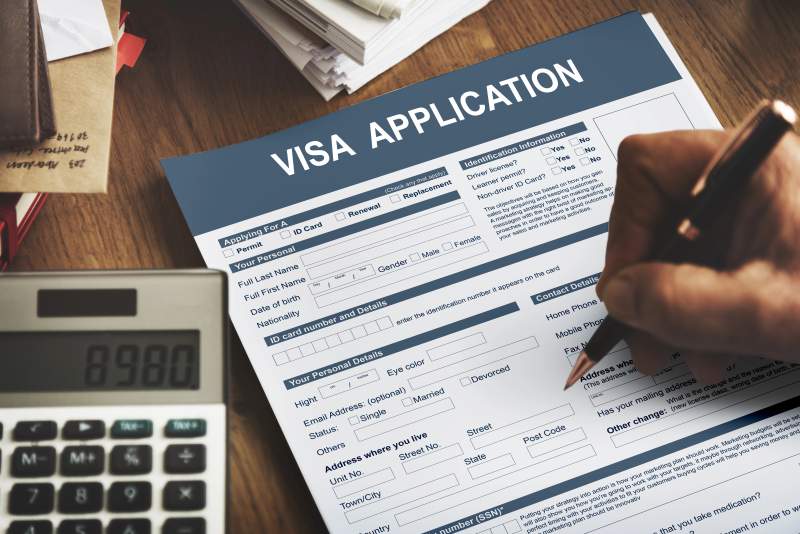Thinking about starting or expanding your business in the U.S. from Laredo, Texas? If you’re from a treaty country, the E-1 or E-2 Visa could be your path in—but knowing which one to pick is key.
The E-1 Visa is built for people focused on trade between the U.S. and their home country, while the E-2 is designed for those investing in a business in the U.S. Both let you live and work legally, but they support different business goals.
In this article, you’ll get a clear, side-by-side look at the E-1 and E-2 Visas. It covers who qualifies, what each one requires, and how to decide which is better for your situation.
Understanding The E-1 Visa
The E-1 Visa is for individuals or companies from treaty countries engaged in significant international trade with the United States. This Visa enables traders and their employees to enter the U.S. to conduct trade primarily between the U.S. and their home country.
To qualify, you must prove that over 50% of your trade volume is with the U.S. and that the business activity is active and traceable. E-1 Visa holders may remain in the country as long as the trade continues, with renewals allowed indefinitely.
While the E-1 Visa supports international commerce, the E-2 Visa offers a path for investment-focused people. That distinction is key.
Navigating The E-2 Visa
The E-2 Visa is intended for nationals of treaty countries who plan to invest a substantial amount of capital in a U.S. enterprise. This Visa allows you to enter and work in the United States based on your investment in a bona fide business.
The investment must be enough to ensure the successful operation of the business. It must also be “at risk,” meaning it is subject to partial or total loss if the business fails. Passive investments or marginal enterprises do not qualify.
You must prove that you will develop and direct the business. Ownership of at least 50% or possession of operational control is required. While the E-2 Visa centers on direct financial investment, the E-1 Visa is structured around trade. Comparing these two options reveals which better suits a specific business model.
Comparing E-1 & E-2 Visa
Understanding the distinction between the E-1 and E-2 Visas is essential when determining which route supports a specific business strategy. Though both fall under the same treaty Visa category, they focus on entirely different economic activities.
Nature Of Activity
The E-1 Visa supports businesses engaged in substantial trade between the United States and the treaty country. This trade must continuously involve a clear exchange of goods, services, or technology. It is ideal for operations that depend on consistent international transactions.
The E-2 Visa, in contrast, is intended for entrepreneurs making a direct investment in a U.S. business. It requires active participation in managing the enterprise, not just capital contribution.
Financial Requirements
Unlike the E-2 Visa, the E-1 does not require a monetary investment. Instead, it emphasizes the volume and regularity of trade activity. Businesses must demonstrate that over half of their international transactions involve the United States.
The E-2 Visa demands a substantial financial investment subject to market risk. There is no fixed minimum, but the amount must be enough to support business operations and reflect a strong commitment to success.
Duration & Renewals
Both Visas are initially granted for up to two years and can be renewed indefinitely. The key to renewal is maintaining Visa eligibility and meeting the original conditions of approval. Each case is reviewed to confirm ongoing compliance. Long-term presence under either Visa is possible, provided the qualifying activities remain consistent.
Family Benefits
Both Visas allow the Visa holder to bring a spouse and children under 21. Children can attend school, and spouses may apply for work authorization if accompanying an E-2 Visa holder. These provisions help maintain family unity and economic stability.
Employee Eligibility
Companies may also sponsor certain employees under either Visa, provided they share the same nationality as the principal applicant. These employees must fill essential roles in the company or possess advanced knowledge.
The differences outlined above reflect the unique purposes of each Visa. With this in mind, you must explore how to choose the one that best fits your business objectives in Laredo.
Determining The Right Visa For Your Business In Laredo, Texas
Laredo is one of the most vital commercial entry points in the United States, particularly for trade with Mexico. Its strategic position, robust logistics infrastructure, and economic activity make it an ideal location for international trade and business investment. Selecting between the E-1 and E-2 Visas in this context depends on the nature of the applicant’s business model and long-term intentions.
Business Objectives
You must begin by identifying your primary business goal. If the business relies on frequent, structured trade between a treaty country and the U.S., the E-1 Visa is likely the stronger choice. However, if you aim to establish or grow a U.S.-based enterprise through direct capital investment, you should consider the E-2 Visa.
Financial Strength & Commitment
The E-2 Visa demands a substantial financial commitment. You should be prepared to show that your investment is significant and at risk in the marketplace. By contrast, E-1 Visa holders must prove consistent trade volume rather than financial investment.
Deciding between these Visas depends on your available resources, business plans, and operational focus. Now, let’s address frequently asked questions to help clarify common points of confusion.
Addressing FAQs On E-1 & E-2 Visa
Choosing the proper Visa often comes with important questions about eligibility, industry fit, and the overall application process. The following responses address some of the most commonly raised concerns from prospective applicants considering the E-1 or E-2 Visa options.
Can I Switch From An E-1 To An E-2 Or Vice Versa?
Switching between the E-1 and E-2 Visa categories is possible, provided you meet the eligibility requirements of the new Visa type. This change involves submitting a new application and supporting documentation demonstrating qualification under the desired classification.
Are There Industry Restrictions For E-1 Or E-2 Visas?
No specific industry restrictions are tied to the E-1 or E-2 Visa classifications. What matters is the nature of the business activity—trade or investment—and whether it aligns with treaty requirements and USCIS criteria. Both Visas are available across various sectors, including manufacturing, services, technology, and hospitality, as long as all eligibility standards are met.
Is The Application Process The Same For Both Visas?
While the application steps for E-1 and E-2 Visas are similar, the documentation required differs. E-2 applicants must submit detailed investment records, business plans, and evidence of business viability. E-1 applicants, on the other hand, must provide trade volume data, transaction records, and proof of continuous commercial activity.
Understanding these practical details helps you set realistic expectations and avoid costly missteps. The following section explains how a qualified immigration attorney can support each step of this important journey.
Lozano Law Firm Helps You Select The Right Pathway
At Lozano Law Firm, we understand how important it is to choose the correct Visa for your business goals. With years of experience handling E-1 and E-2 Visa applications, our team is committed to providing clear, focused legal guidance every step of the way.
We carefully assess your business plans, financial standing, and long-term objectives to recommend the strongest path forward for your Visa. Our approach is thorough, strategic, and personalized.
We prepare detailed documentation, guide you through submission, and represent your interests with professionalism and integrity. Whether you’re expanding trade or launching a new enterprise, we work to remove the guesswork and deliver confident results.
Clients trust us because we take the time to understand their goals and align legal solutions accordingly. Lozano Law Firm will help you start with strength and clarity if you’re ready to begin your U.S. business journey.
Choosing between the E-1 and E-2 Visas requires a clear understanding of your business model, investment capacity, and long-term plans in the U.S. While both Visas offer substantial advantages, the right option depends on whether your focus is on trade or investment.
Careful planning and legal support can make the process smoother and more successful. Lozano Law Firm is prepared to help evaluate your situation, guide you through the application, and ensure your business goals align with the right immigration strategy.
Download Our E-2 Guide
Navigating The E-2 Treaty Investor Visa





